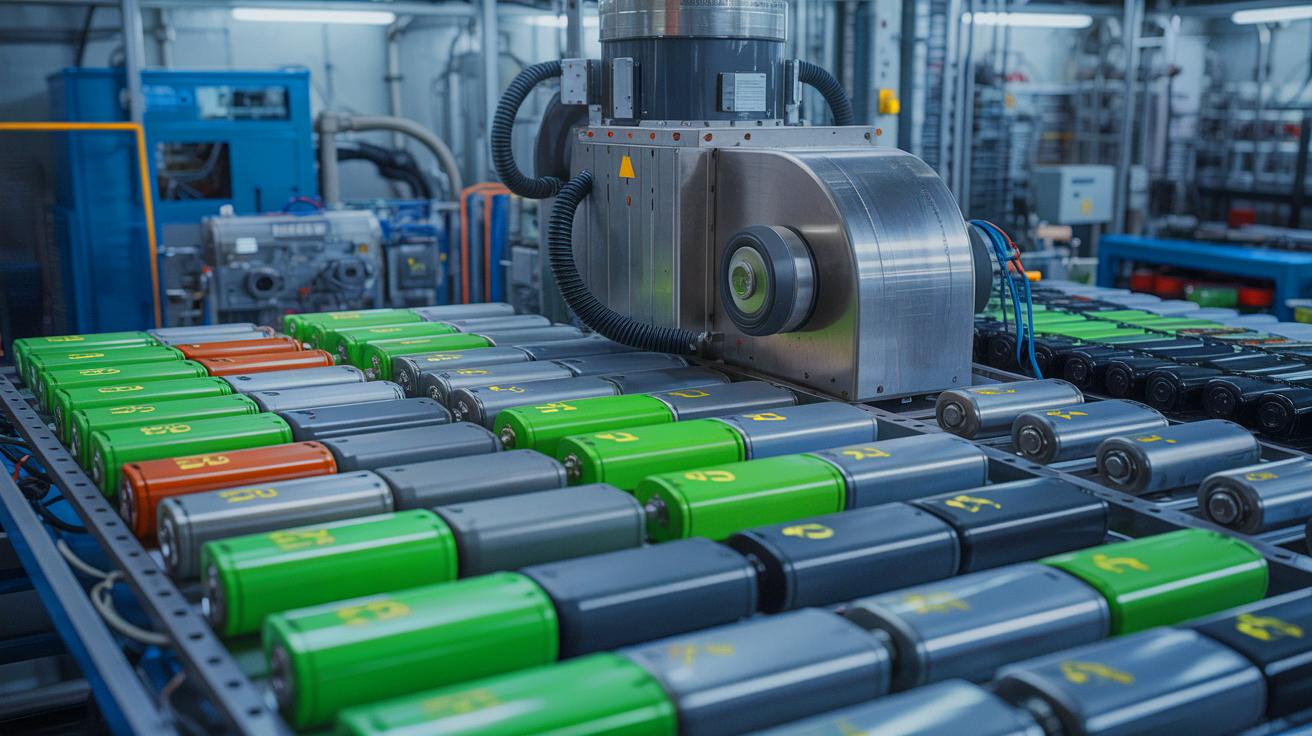- 🔋 WPI researchers developed an innovative, eco-friendly method to recycle lithium-ion batteries.
- ♻️ The new process successfully recovers 92% of critical metals from spent batteries.
- 🌿 This method uses 8.6% less energy and reduces carbon emissions by 13.9% compared to traditional techniques.
- 🔧 Batteries made from recycled materials retain over 85% capacity after 900 charge cycles.
In an era where sustainability takes center stage, the recycling of lithium-ion batteries presents a compelling solution to address the growing demand for critical materials. As countries worldwide accelerate their transition to renewable energy, the need for effective storage solutions has never been greater. Lithium-ion batteries, known for their high energy density and scalability, have become a cornerstone of this energy revolution. However, the extraction of lithium and other essential materials like nickel, cobalt, and manganese poses environmental challenges. Researchers at Worcester Polytechnic Institute (WPI) have pioneered an innovative approach that promises to revolutionize battery recycling, making it both eco-friendly and efficient.
The Growing Need for Battery Recycling
Lithium-ion batteries are ubiquitous, powering everything from smartphones to electric vehicles and grid-based energy storage systems. Despite their versatility and efficiency, these batteries have a finite lifespan, typically lasting only a few years or a couple of thousand charge cycles. As more devices and vehicles rely on these batteries, the number of defunct units is set to rise sharply. This surge in demand for new components necessitates increased mining activities, which are environmentally detrimental. Recycling presents a viable solution, yet traditional methods have been energy-intensive and often fail to recover high-quality components. By addressing these challenges, recycling can significantly reduce the environmental impact of battery production and extend the life cycle of critical materials.
Innovative Hydrometallurgical Method
At the forefront of battery recycling innovation is a research team led by Professor Yan Wang at WPI. They have developed a hydrometallurgical method that recovers critical metals from spent lithium-ion batteries with remarkable efficiency. This process not only yields high-quality output but is also environmentally sustainable. The team successfully recovered 92 percent of critical metals from used batteries, transforming them into a cathode powder suitable for making new battery cathodes. This breakthrough method uses 8.6 percent less energy compared to conventional techniques and decreases carbon emissions by 13.9 percent. Such advancements underscore the potential of recycled materials to produce high-performance batteries, thereby reducing reliance on mining and mitigating environmental harm.
Performance and Environmental Benefits
The batteries produced from the recycled cathode powder demonstrated impressive performance, retaining 88 percent of their capacity after 500 charge cycles and over 85 percent after 900 cycles. This level of efficiency is crucial for meeting the demands of modern energy storage solutions. Moreover, the eco-friendly nature of the recycling process aligns with global sustainability goals by lowering energy consumption and carbon emissions. As Professor Wang highlighted, this work not only tackles the environmental challenges posed by battery waste but also strengthens the resilience of the battery supply chain. The ability to sustainably recycle and reuse materials at scale is a pivotal step toward building a more sustainable energy future.
Implications for Future Energy Solutions
The implications of this research extend far beyond immediate recycling benefits. By demonstrating the viability of creating high-performance batteries from recycled materials, WPI’s research paves the way for a more sustainable and resilient energy landscape. This innovative approach could significantly impact the way industries and governments perceive and implement recycling technologies. As the demand for energy storage solutions continues to grow, the ability to efficiently recycle and reuse battery components will be essential for meeting global sustainability targets. The research findings, published in the journal Energy Storage Materials, highlight the potential for a circular economy in the battery industry, where waste is minimized, and resources are continually reused.
As we move towards a future driven by renewable energy, the need for sustainable practices in battery production and recycling becomes increasingly critical. The research conducted by WPI offers a promising glimpse into a cleaner, more efficient way to manage battery waste and resource extraction. How will this innovative approach influence the future of energy storage and the global push for sustainability?
This article is based on verified sources and supported by editorial technologies.
Did you like it? 4.6/5 (20)
